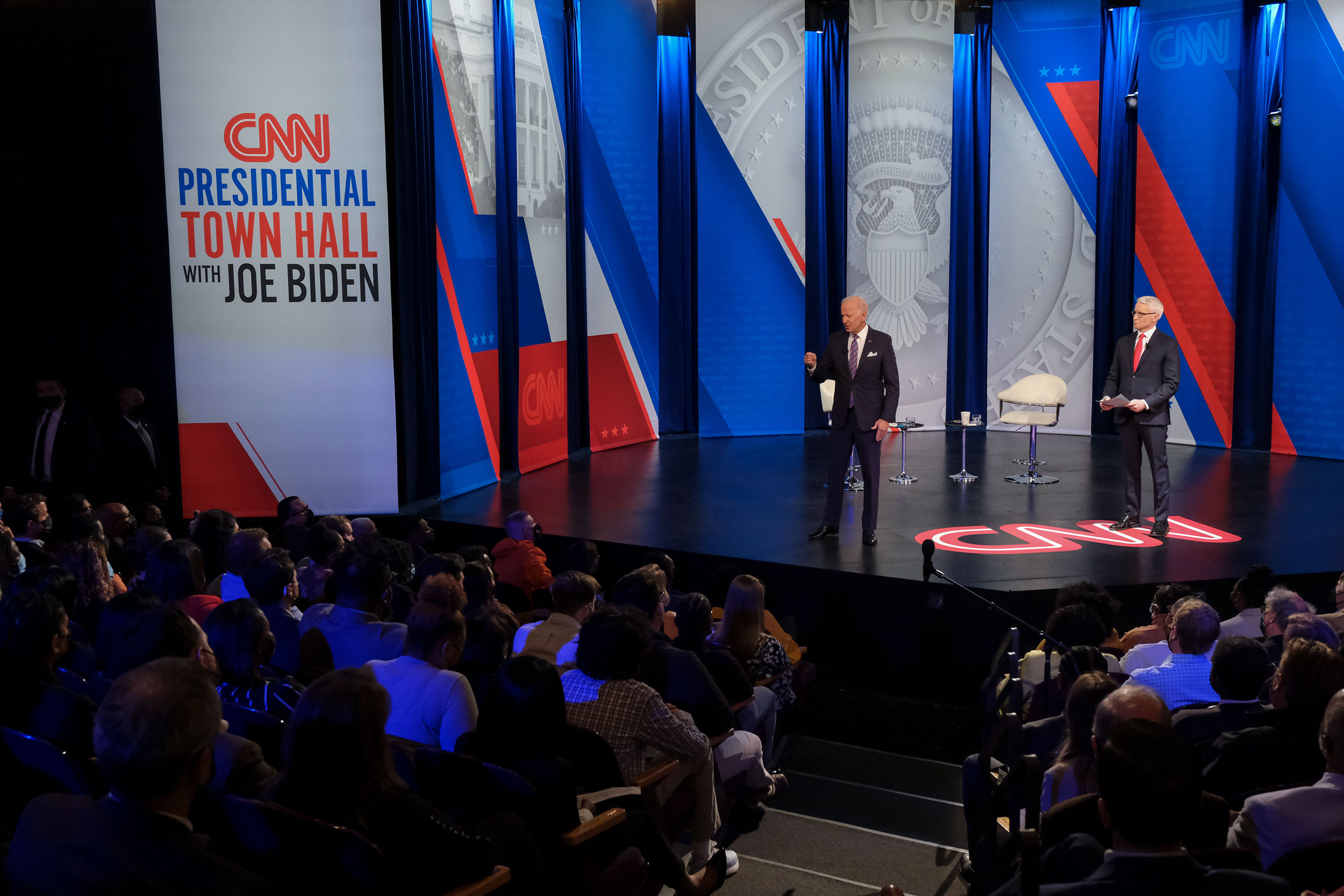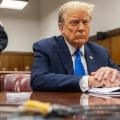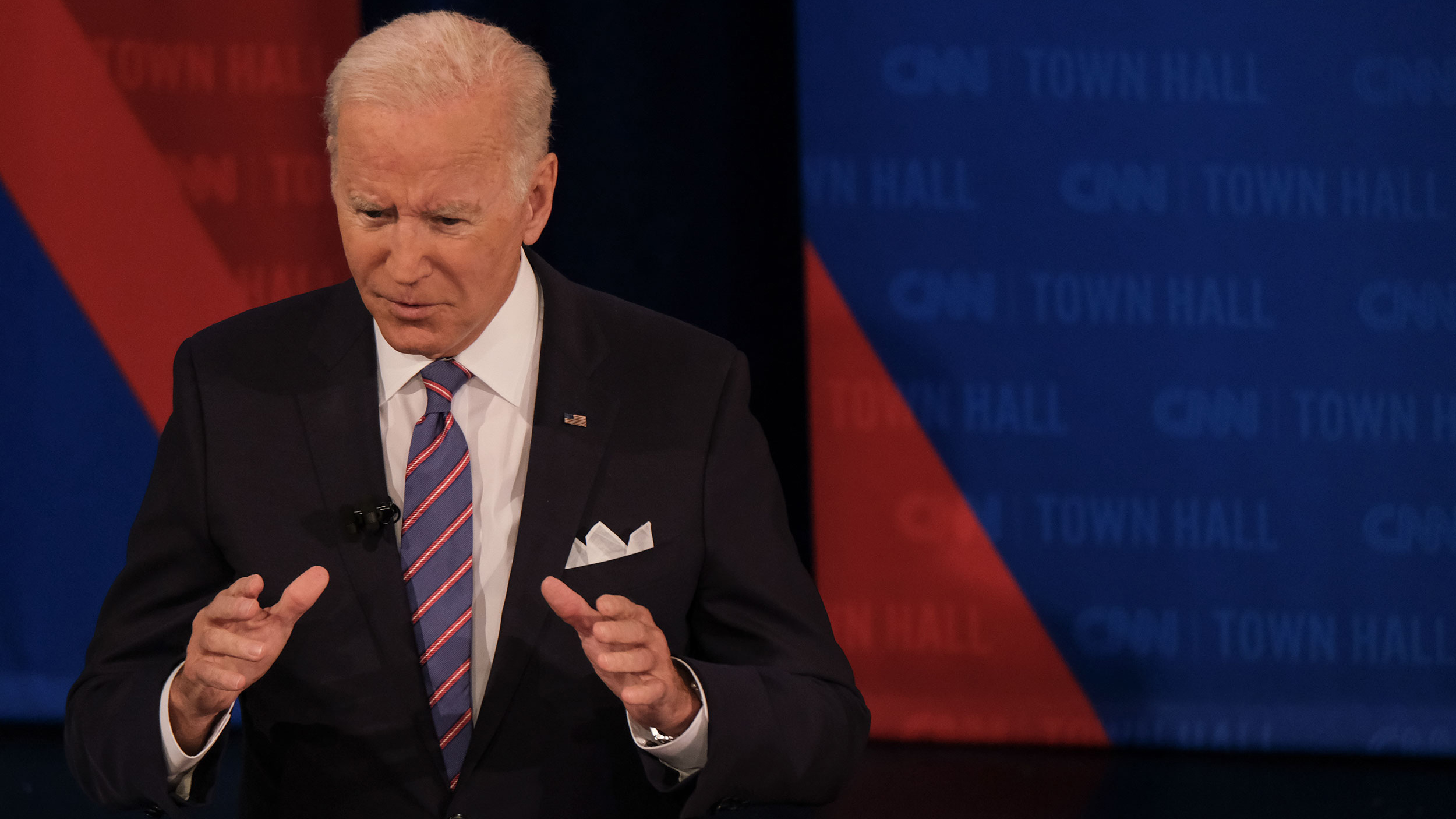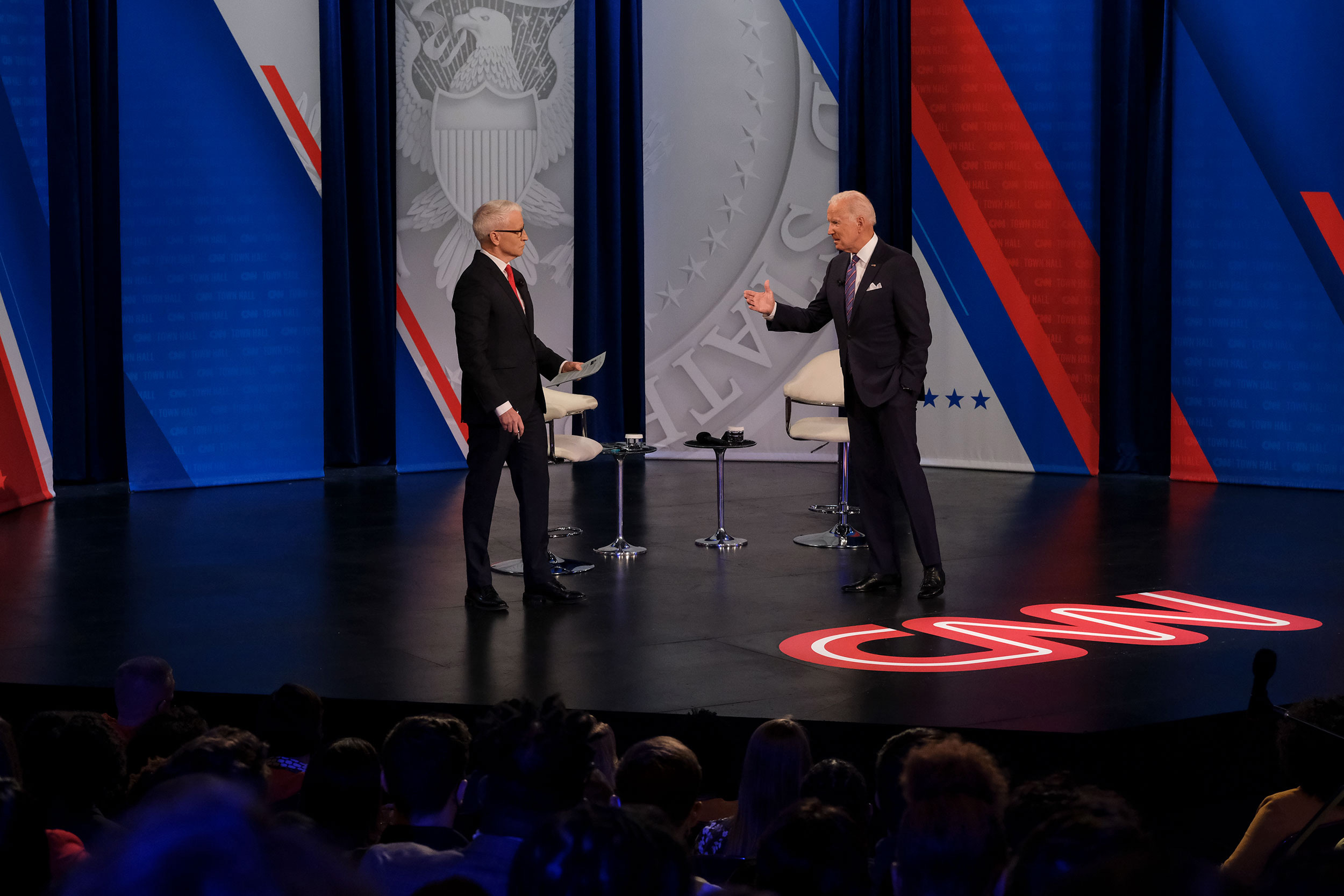
President Biden answered a range of questions during a CNN town hall in Baltimore this evening.
The town hall came at a critical time for Biden as his administration continues to sell his ambitious legislative agenda to members of Congress and the nation.
If you're just reading in now, here's a look at some of the highlights from tonight:
- On the infrastructure bill deal: Biden expressed optimism that Democrats in Congress would eke out a deal on his administration’s bipartisan infrastructure package and a budget reconciliation bill aimed at what he called “the care economy,” telling CNN’s Anderson Cooper “I do think we’ll get a deal.”
- On the spending plan — and what's NOT in it: Biden laid out in the most specific terms to date what will and won’t be included in a compromise budget measure that contains the bulk of his sweeping domestic agenda. He said a paid leave provision had been whittled down to four weeks, down from Biden’s goal of twelve weeks. And he said it would a “reach” to include dental, vision and hearing coverage to Medicare, a key priority for progressives, saying it was opposed by Sen. Joe Manchin — and that he believed Sen. Kyrsten Sinema was against it as well. Instead, he said he was working to include an $800 voucher for dental coverage, and was still negotiating vision coverage.
- On the filibuster: Biden acknowledged in his strongest terms to date that filibuster reform will be necessary to pass key items like voting rights legislation and debt limit increases, but that doing so now would hamper his ability to pass his economic agenda. Asked whether he would entertain the notion of getting rid of the filibuster for voting rights legislation, Biden said "maybe more."
- On the supply chain crisis: Biden said he's considering deploying the National Guard to help ease stress on the US supply chain as it prompts growing concern about the economy. "Yes, absolutely, positively. I will do that," Biden said.
- On Covid-19 vaccine mandates: Pressed if police officers and other first responders who refuse the Covid-19 vaccine should be forced to stay at home or be let go, President Joe Biden told Cooper, “Yes, and yes.” Biden also lamented misinformation surrounding vaccines, “like what they're saying about my buddy Colin Powell — and he was my friend — who passed away.” Powell, who was vaccinated, died Monday of Covid-19 complications, but was immunocompromised while seeking treatment for multiple myeloma.




